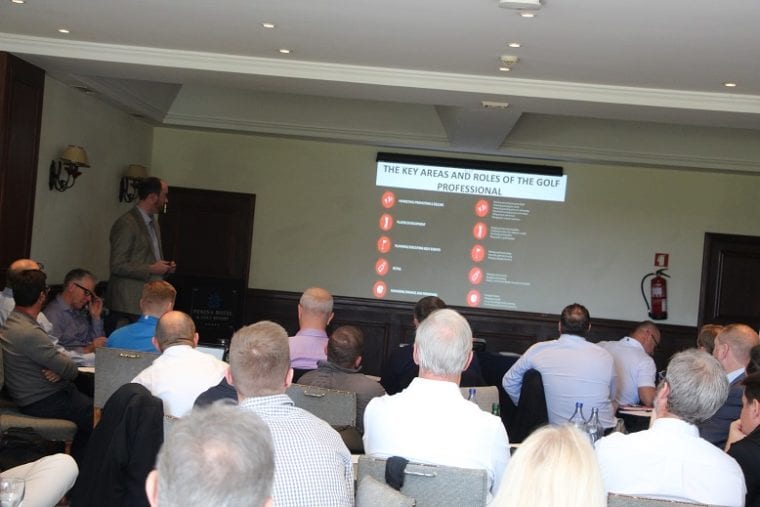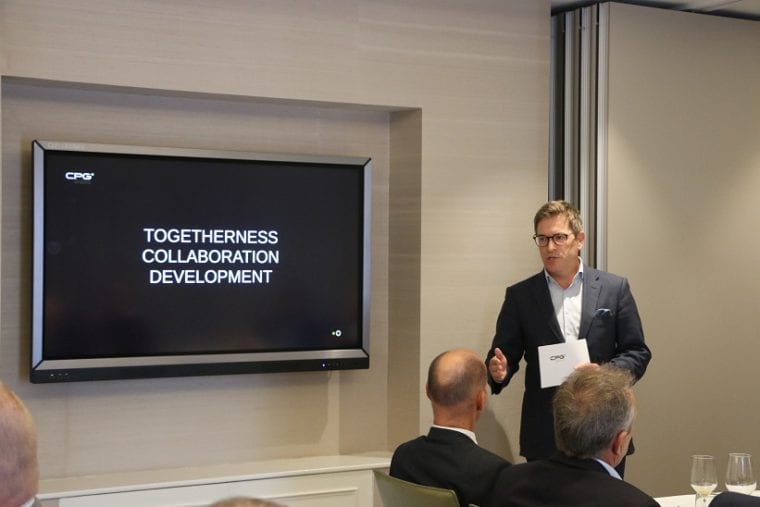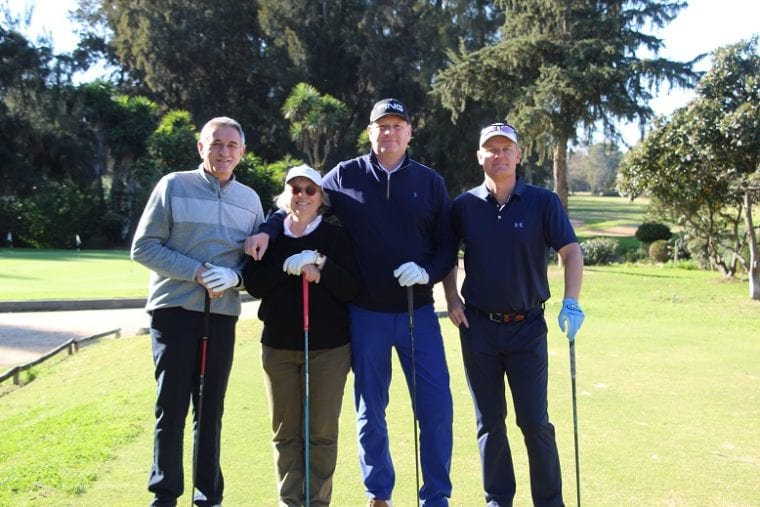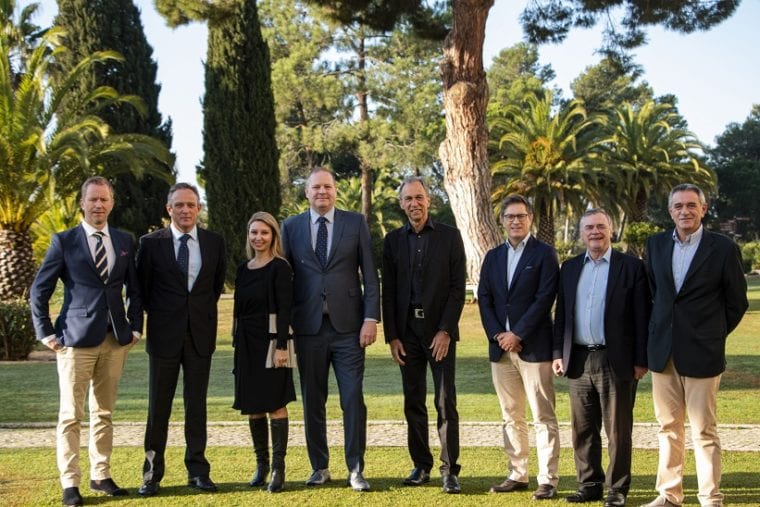After giving a successful keynote presentation about employee experience development in golf clubs at the Finland Golf Industry Days Conference in November 2019 I thought to interview Ian Randell, the Chief Executive of the Confederation of Professional Golf [CPG].
As you will see I focused on how can a PGA Professional be an asset for a golf club.
What are the biggest challenges for PGA Professionals in Europe and globally?
Firstly, I believe that we need to define and understand what being a “PGA Professional” means.
PGA Professionals are employed and engaged across so many areas of the golf industry, from the traditional Club Professional overseeing coaching, retailing, playing and often the entire golf operation to those coaching on a full-time basis, managing facilities, playing for their living or driving so many other parts of the golf industry.
I believe that the PGA of America mantra that PGA Professionals are experts in the game and business of golf is now more relevant than ever.
The biggest challenge for the PGA Professional is, therefore, ensuring that they remain relevant and are adding value to the golfer, facilities and the industry in today’s modern, digitally-driven society.
For more than 100 years the PGA Professional has evolved to remain central to the leadership and development of the game and we are very confident that this will remain and that the roles that PGA Professionals fulfill within golf will continue to change and expand.
From an employer’s perspective, such as a golf club, the PGA Professional must, therefore, be able to prove that they are still a key and influential part of their business and that their unique skillsets can provide a financial return.
I think the market completely understands the PGA Professional as somebody who is highly skilled and knowledgeable in the field of golf coaching.
However, as the emphasis being placed by golf clubs on the need to attract and retain new and existing golfers continues to grow, so too does the need for PGA Professionals to continue to adapt their skills to one that is not just an expert in coaching but also an expert in golf marketing, financial management and other key areas of the golf business.

As we head into a new decade, what sort of future do you see for the PGA Profession and the Professional Golf Industry?
The growing impetus for PGA Professionals to diversify, specialise and adapt their skillset will continue to grow massively in the future, and the view that PGA Professionals are recognised as ‘Professionals in Golf’, rather than just ‘Professional Golfers’ will become more and more prevalent as they provide expertise right across the golf industry and we will likely see an evolution of the requirements of PGA membership to facilitate this.
As a result, we will see members of PGAs pursuing and fulfilling roles from a wide variety of disciplines and specialities in the industry, rather than just a traditional ‘Club Professional’, not only to remain relevant but also meet the changing needs of the market.
To facilitate this, we are currently examining and rebuilding our own education framework that will enable an individual from any given country to choose and follow defined career pathways in the industry, obtain the necessary educational requirements and skills for that specialty and in turn increase the diversification of the PGA Professional.
So long as we continue to ensure the golf industry provides exciting and attractive career propositions, we will continue to attract highly talented individuals for the industry.

How can golf clubs empower their PGA Professionals to become a greater ‘asset’ to themselves and their employers?
A collaborative mindset from both the PGA Professional and the golf club/business is vital.
Too often we see the PGA Professional, often through no fault of their own, operating in complete isolation or seclusion from the main areas of the golf club, particularly if their main role is as a Coach.
This increases the challenge of having a serious involvement and influence in the day-to-day running and management of the club itself.
By engaging the PGA Professional, be that through creating greater inclusion for them in the decision making of the club, or by offering them greater responsibility alongside their normal role, we can then start to empower that individual and enable them to make key and influential decisions that will impact the success of the golf club as a whole, helping them to provide substantial value as an employee of that club.

What kind of PGA Professional hiring & retention practices do you recommend to golf clubs?
In simple terms, we don’t. We will advise National PGAs on the types of agreement that may be put into place, but the needs of the market will vary hugely from facility to facility and country to country.
One of the key strengths of our Association is the understanding that the needs of golf in each country are unique and that it is our role to guide and assist national bodies in their development depending on the stage of evolution of golf, the market and the culture both in and out of the sport.
For example, what a highly-established market such as Sweden, Germany or Spain might desire from a PGA Professional differs greatly to what a much smaller, developing golfing nation such as Estonia or Bulgaria does, and so it is a very relevant question in the recruitment process.
What we would suggest, however, is that during the recruitment process, a golf club or facility hiring must review and clearly define the skills, qualifications, and requirements they need for the advertised role in question, and upon hiring, both the facility and Pro must explicitly lay out their expectations of one another.
Every golf club has different financial and operational objectives and that means the expectations of their PGA Professional can differ greatly.

How could golf clubs create compelling & sustainable employee experiences for PGA Professionals?
As before, it depends on the role that the PGA Professional is fulfilling, but whatever that is I am a huge believer in structuring the management of the club as you would with any business and ensure that the management of the club in all areas – manager, Pro, greenkeeper and food & beverage are integrated towards a collective goal and culture with each having clear ownership and accountability within their role but building towards the collective goals.
Placing the PGA Professional at the centre of the club’s golf operation is a well-proven path for success.
For so many years the PGA Professional has been at the heart of the club, usually the direct first-contact with each and every customer who walks through the door, ensuring that they enjoy playing the game and that they are socially integrated.
In this example, the PGA Pro plays the role of Coach, Golf Operations Manager and Business Development Director!

Where does the Confederation of Professional Golf [CPG] come into all of this?
We continue to strive with our mission of developing golf on a global scale, bettering and increasing the opportunities for Professional golf and enabling more people of all ages and backgrounds to enjoy our sport.
We also continue to be a proud partner within Ryder Cup Europe, through the vehicle of the Ryder Cup European Development Trust [RCEDT].
Whilst it is important to emphasise this continuation, what I think has been changed considerably under the new CPG brand is the way we are aiming to achieve these objectives. At the core of the CPG’s new strategic direction are the three pillars of Togetherness, Collaboration, and Development between the organisation and our membership:
Togetherness recognises our greatest strength being the collective knowledge, influence and international nature of our membership, and that if we can create a one-organisation mentality within that structure, where each country views the CPG as an extension of themselves whilst maintaining their autonomy, the benefit to everybody will be profound.
The Collaboration focuses on the opportunities CPG Member Countries can create from a more collaborative relationship with the CPG.
This is because as a collective organisation we are able to work with one another more closely, work across different areas together, create various new and exciting business opportunities, and ultimately benefit from economies of scale as a result.
Development focuses on continuing and increasing our work in growing the game of golf, through the PGAs themselves, the education and skills of the overall workforce and the opportunities available to them in various key areas, which in turn will create a significant impact on participation and engagement within the sport, and create new opportunities.
Ensuring that professional education meets both the needs of each market and attracts the best talent through exciting career pathways and opportunities to provide a skilled and well-educated workforce for the development of the sport is central to the work that we are doing in conjunction with our National PGAs.
It is normal for the needs and motivations of individuals entering any industry to change dramatically throughout their career and we must continue providing learning long after initial training programmes that equips individuals with the relevant skills and knowledge needed to continue their progression as Professionals in Golf and adapt their own career pathways.
Through our reviewed and revised framework, we are able achieve this on an international scale, which will create such a culture across every market and afford every individual the opportunity to own their learning and professional development in domestic and international markets.
This is an exciting time for golf and there is no doubt that there is nobody better equipped to develop the game than a well-educated PGA Professional – and long may this continue!
